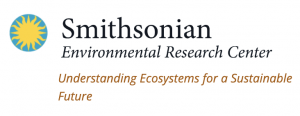SERC Interdisciplinary Postdoctoral Research Fellows

- Deadline: October 25, 2023
- Employment type: Full-time
- Federal position? Yes
- Salary: $64,957 per year (GS-9) term position plus Federal term employee benefits
- Appointment type: Term - NTE 3 years
- Location: Edgewater, MD
- Work model: Telework eligible
Overview
The Smithsonian Institution seeks three energetic, field- and data-oriented Interdisciplinary Postdoctoral Research Fellows to develop and implement projects related to the Our Shared Future: Life on a Sustainable Planet Initiative and MarineGEO program. One postdoctoral fellow will be hired in each of three areas: 1) Oyster Reef Ecology, 2) Ecology of Urban Estuaries, and 3) Marine Biodiversity Conservation (see detailed research themes below). Each postdoctoral research fellow position is a Federal term position with a maximum of three years employment. We especially seek applicants with strong writing skills and experience in data mining and synthesis.
Oyster Reef Ecology
Biogenic reefs, created by living marine organisms, are the foundations of marine ecosystems throughout the world, supporting biodiversity and ecosystem services critical to human health and livelihoods. Oyster reefs have declined by 85% from historical abundances and are functionally extinct in many regions. The causes of these declines are many, including overfishing, habitat destruction, pollution, and disease, but reefs now face additional, increasing pressure from rapid human population growth and development and rapid ocean warming and acidification.
We seek a postdoctoral fellow who will take innovative approaches to exploring how understanding responses of diverse types of oysters to stressors can inform effective oyster and oyster reef conservation and restoration via ecosystem-based adaptation and nature-based solutions. The fellow will also work alongside Smithsonian scientists to build an oyster research network to facilitate comparative studies at large spatial scales.
Ecology of Urbanized Estuaries
With 40% of the global population living within 50 km of a coast, anthropogenic effects on coastal ecosystems --- especially bays and estuaries --- are enormous and diverse. Such human pressures often are concentrated in urban settings, where development and economic activities strongly shape watershed characteristics, biological communities, and ecosystem function, impacting both biodiversity and human well-being s. Land use, industrialization, shoreline development, commercial shipping, and fishing pressure are among key drivers of change in urban estuaries. In turn, these environmental changes interact with ongoing climate change (e.g., increased precipitation intensity, storm surge, and sea level rise), which can affect ecosystem responses.
We seek a postdoctoral fellow who will advance interdisciplinary environmental research and data synthesis to understand ecological processes, dynamics, and function of urbanized estuaries. This fellow will work with a team of Smithsonian scientists with diverse interests to develop comparative analyses across estuaries and multiple spatial scales.
Marine Biodiversity Conservation
Conservation interventions like marine protected areas (MPAs) and other effective area-based conservation measures (OECMs) will be central strategies for achieving multiple sustainable development goals, such as food security and protection of marine resources. International policies aspire to expand MPAs and OECMs globally and within the U.S. to 30% of marine areas by 2030, but there is debate over how to optimize the design and management of MPA and OECM networks to enhance their climate resilience and potential co-benefits. For example, the locations of many current MPAs are biased toward ecologically intact areas with low fishing pressure, limiting near-term conservation impacts.
We seek a postdoctoral fellow to pursue innovative approaches to spatial planning that integrate assessments of past and projected impacts of marine conservation interventions, social dimensions, and/or vulnerability of fisheries to climate change. These approaches will be necessary to ensure that marine conservation efforts achieve desired outcomes of supporting fisheries, livelihoods, and food security.
These positions are based at the Smithsonian Environmental Research Center in Edgewater, MD and require occasional travel. Research and education at SERC address grand challenges in environmental science by working across ecological scales, conducting long-term field studies, and engaging in comparative, synthetic studies. Our scientists collaborate across the Smithsonian Institution and beyond, with federal and state agencies, universities, and international organizations. We value public engagement and have strong programs in citizen science, science education, and science communication.
These are full-time, Federal term positions with comprehensive benefits packages. The positions are open to US citizens only. The Smithsonian Institution is an equal opportunity employer, committed to a policy of nondiscrimination on the basis of race/ethnicity, national origin, gender identity and expression, sexual orientation, age, religion, marital/parental/caregiver status and disability. The SERC community recognizes the value of diversity in promoting innovative science and creative solutions, and we strongly encourage candidates from all backgrounds to apply.
Qualifications and Requirements
Requirements for these positions include:
- One year of specialized experience equivalent to at least GS-7 level in the federal service or comparable pay band system. This specialized experience is defined as research investigating oyster reef ecology, urban estuarine ecology, or marine biodiversity conservation or related subject area, or
- Two years of progressively higher level graduate education leading to a master's degree or master's or equivalent graduate degree in the subject area of ecology, environmental science, geography, biology, physical sciences or related subject.
- Your resume must describe your experience and skills in each of the following:
- Research program development and management
- Communication and publication
- Professional service
- Research grant and/or contract proposals
- Your resume must state the start and end dates of each position held (MM/YYYY) and the number of hours worked each week (e.g., 40 hrs/wk). Please see Tips for Applying for Federal Jobs for more tips.
- For additional requirements, please refer to the USAJobs advertisement.
How to Apply
Apply through USA Jobs Vacancy Announcements: 23R-ST-309680-DEU-SERC
Applications directly to SERC will not be accepted.
Contact
Please address questions about the position announcement to: LSP_Fellow@si.edu
NO APPLICATIONS WILL BE ACCEPTED AT THIS ADDRESS; APPLICATIONS MUST BE SUBMITTED ONLY through USA Jobs Vacancy Announcements: 23R-ST-309680-DEU-SERC.
About SERC
SERC is a research center of the Smithsonian Institution, located in Edgewater, MD on the western shore of the Chesapeake Bay, approximately 10 miles south of Annapolis, 40 miles west of Washington DC, and 40 miles south of Baltimore. SERC’s 2,650-acre campus is a living laboratory for long-term ecosystem research on forests, farmland, wetlands, shorelines, and estuaries. The SERC campus contains a laboratory and office complex, as well as education and waterfront facilities, dormitories for interns, and guest housing for visitors.
The Smithsonian Institution is an equal opportunity employer, committed to a policy of non-discrimination on the basis of race/ethnicity, national origin, sex, gender identity and expression, sexual orientation, age, religion, marital, parental, or caregiver status, and disability. The SERC community recognizes the value of workforce diversity, and we strongly encourage candidates from all backgrounds to apply. We recognize that each applicant for this role will bring unique skills, knowledge, experiences, and background to this position. Competitive candidates will have many, but not necessarily all, of the listed qualifications and experiences.
